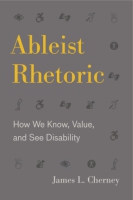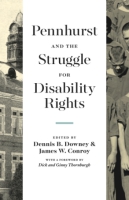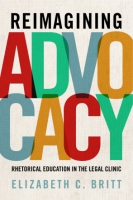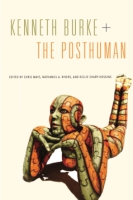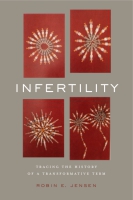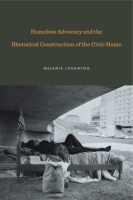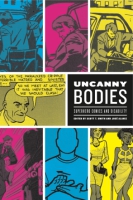Ableist Rhetoric
How We Know, Value, and See Disability
James L. Cherney
“Cherney shows how the powerful but mostly invisible rhetoric of ableism shapes beliefs about disability. Carefully argued case studies—from The Exorcist, to the cochlear implant debate, to the Casey Martin controversy—illustrate how ableism operates through the warrants of ‘deviance is evil,’ ‘normal is natural,’ ‘body is able’ and across epistemic, ideological, and visual dimensions. They form the heart of the book, making it accessible and engaging for use in an undergraduate rhetoric or disability studies course.”
- Description
- Reviews
- Bio
- Table of Contents
- Sample Chapters
- Subjects
Ableist Rhetoric argues that ableism is learned and transmitted through the ways we speak about those with disabilities. Through a series of textual case studies, Cherney identifies three rhetorical norms that help illustrate the widespread influence of ableist ideas in society. He explores the notion that “deviance is evil” by analyzing the possession narratives of Cotton Mather and the modern horror touchstone The Exorcist. He then considers whether “normal is natural” in Aristotle’s Generation of Animals and in the cultural debate over cochlear implants. Finally, he shows how the norm “body is able” operates in Alexander Graham Bell’s writings on eugenics and in the legal cases brought by disabled athletes Casey Martin and Oscar Pistorius. These three simple equivalencies play complex roles within the social institutions of religion, medicine, law, and sport. Cherney concludes by calling for a rhetorical model of disability, which, he argues, will provide a shift in orientation to challenge ableism’s epistemic, ideological, and visual components.
Accessible and compelling, this groundbreaking book will appeal to scholars of rhetoric and of disability studies as well as to disability rights advocates.
“Cherney shows how the powerful but mostly invisible rhetoric of ableism shapes beliefs about disability. Carefully argued case studies—from The Exorcist, to the cochlear implant debate, to the Casey Martin controversy—illustrate how ableism operates through the warrants of ‘deviance is evil,’ ‘normal is natural,’ ‘body is able’ and across epistemic, ideological, and visual dimensions. They form the heart of the book, making it accessible and engaging for use in an undergraduate rhetoric or disability studies course.”
“As illustrated in this rich examination of ableism in Western society, ableism’s tendency to adapt to different time periods and zeitgeists while naturalizing itself through rhetorical repetition means that Cherney’s study heralds a new field of inquiry that takes ableism, geographical specificity, and rhetoric as its nexus.”
James L. Cherney is Associate Professor in the Department of Communication Studies at the University of Nevada, Reno.
Contents
Acknowledgments
1. The Rhetorical Dimensions of Ableism
2. Fearing Disability and the Possession Narrative
3. Ableism and the Cochlear Implant Debate
4. Sport as Ableist Institution
5. A Rhetorical Model of Disability
Notes
Bibliography
Index
Download a PDF sample chapter here: Chapter One
Mailing List
Subscribe to our mailing list and be notified about new titles, journals and catalogs.
